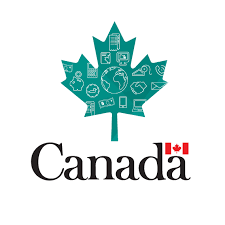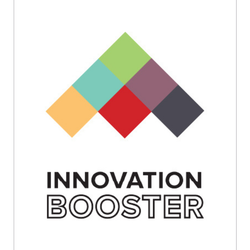
New Frontiers in Research Fund — Exploration Stream
At a glance
- Maximum amount : 500,000 $
- Open Date : February 17, 2025
- Closing date : February 26, 2025
- All industries
- Canada
- All legal structures
- All revenue ranges
- All organization sizes
- Indigenous Peoples
- Persons with Disabilities
- Youth (<40)
- Women
Overview
The NFRF 2024 Exploration competition seeks to support high-risk, high-reward, interdisciplinary research that challenges current paradigms and explores new areas. Eligible activities include innovative projects that bring together diverse disciplines in novel ways to achieve groundbreaking impacts. Researchers from any discipline within social sciences, humanities, health, natural sciences, and engineering are encouraged to apply.
Activities funded
The New Frontiers in Research Fund — Exploration Stream supports high-risk, high-reward and interdisciplinary research projects. These activities are encouraged to push boundaries and explore exciting new areas by defying current paradigms and innovating at the intersection of various disciplines.
- High-risk research projects with potential for game-changing impacts.
- Interdisciplinary collaboration bringing together unexpected combinations of disciplines.
- Research initiatives aimed at challenging current research perspectives or paradigms.
- Projects that explore novel approaches to solve existing problems using unfamiliar interdisciplinary perspectives.
Eligibility
Eligibility for this grant is determined by specific criteria that applicants must meet as described in the competition overview.
Who is eligible?
This competition encourages high-risk, high-reward interdisciplinary research that pushes boundaries and involves collaboration across diverse fields in social sciences, humanities, health, natural sciences, and engineering.
Eligible expenses
Eligible projects for this grant focus on high-risk, high-reward, and interdisciplinary research initiatives. These projects are encouraged to challenge existing paradigms and integrate diverse disciplines to achieve innovative outcomes.
- Research that challenges current paradigms and pushes boundaries into new areas.
- Projects that involve combining disciplines in unexpected ways to innovate.
- High-risk research proposals with potential for game-changing impacts.
- Interdisciplinary projects involving perspectives from social sciences, humanities, health, and natural sciences and engineering.
Selection criteria
The evaluation and selection of projects for the NFRF 2024 Exploration competition are based on several critical criteria, each contributing a specific percentage towards the overall score.
- High risk: 40% of overall score
- High reward: 40% of overall score
- Feasibility: 20% of overall score
- Interdisciplinarity/fit to program: pass/fail
- EDI in research practice: pass/fail
How to apply
Notice of Intent to Apply (NOI)
- Access the Convergence Portal to submit a notice of intent to apply.
- Provide basic project information and details about the research team.
- Ensure adherence to the NOI instructions outlined in the competition overview.
Preparing the Full Application
- Gather necessary documents such as research proposal, budget justification (although budget isn't a selection criterion), and any other supporting documents.
- Ensure the research proposal aligns with high-risk, high-reward criteria and clearly demonstrates interdisciplinarity and EDI in research practice.
Submitting the Application
- Log into the Convergence Portal to access the full application form.
- Submit all required documents and complete the online application form.
- Double-check all information for accuracy and completeness before the submission deadline of November 5, 2024, 8:00 p.m. (eastern).
Confirmation of Submission
- Receive confirmation of submission through the Convergence Portal.
- Make a note of your application number for future reference.
Additional information
The New Frontiers in Research Fund 2024 Exploration competition aims to support high-risk, high-reward, interdisciplinary research. This fund encourages proposals that push boundaries and may not conform to current paradigms.
- Diversity of perspectives is encouraged, with no restrictions on research led from any discipline.
- The competition includes specific guidelines for Indigenous research and emphasizes equity, diversity, and inclusion (EDI) in research practice.
- Applications are reviewed by a multidisciplinary panel, which considers a mix of criteria including high risk, high reward, and feasibility.
- Confidentiality and conflict of interest policies are strictly enforced throughout the review process.
- Applications that do not meet guidelines or are incomplete may be rejected by NFRF staff.
- Review panel co-chairs are responsible for ensuring objective and fair assessments and moderating discussions.
- Funding recommendations are made by the review panel, but final decisions are subject to approval by the NFRF steering committee.
- Early career researchers (ECR) are given particular consideration, with the program committing to fund a proportion of ECR-led projects.
Frequently Asked Questions about the New Frontiers in Research Fund — Exploration Stream Program
What is the New Frontiers in Research Fund — Exploration Stream?
How much funding can be received?
What is the deadline to apply?
Who is eligible for the New Frontiers in Research Fund — Exploration Stream program?
What expenses are eligible under New Frontiers in Research Fund — Exploration Stream?
Who can I contact for more information about the New Frontiers in Research Fund — Exploration Stream?
Where is the New Frontiers in Research Fund — Exploration Stream available?
More programs like this

Industrial Research Assistance Program (IRAP) — Financial Assistance
National Research Council Canada (NRC)
Scientific Research and Experimental Development (SR&ED) — Tax Incentive Program
Canada Revenue Agency (CRA)
Industrial Research Assistance Program (IRAP) – AI Assist
National Research Council Canada (NRC)
Clean Technology Manufacturing (CTM) Investment Tax Credit (ITC)
Canada Revenue Agency (CRA)
Strategic Innovation Fund (SIF)
Innovation, Science and Economic Development Canada (ISED)
AI-Powered Supply Chains Cluster (Scale AI)
Global Innovation Clusters (GIC)
AgriScience Program – Clusters
Agriculture and Agri-Food Canada (AAFC)
Industrial Research Assistance Program (IRAP) — Youth Employment Program (YEP)
National Research Council Canada (NRC)
CFIN Innovation Booster
Canadian Food Innovation Network (CFIN)